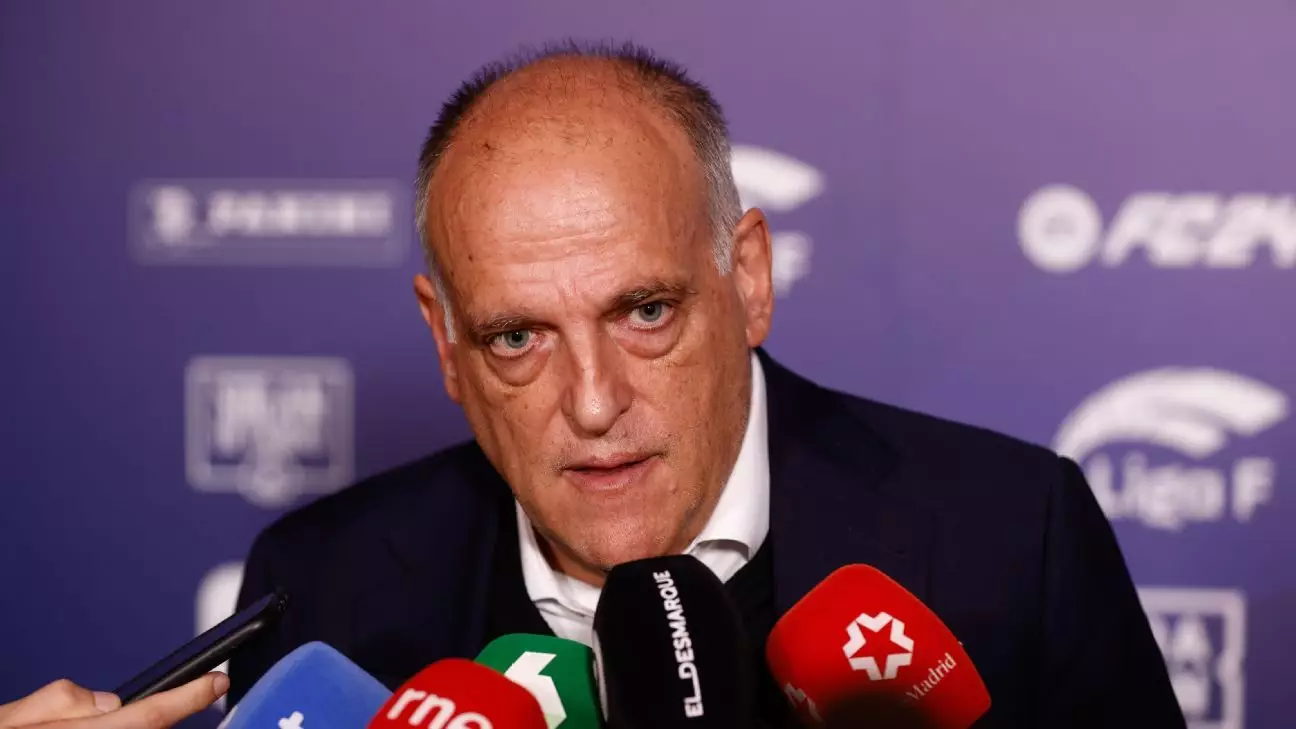In a significant development for Spanish football, LaLiga President Javier Tebas has found himself at the center of a controversy stemming from a complaint lodged by Real Madrid. In July, Spain’s Administrative Sports Court (TAD) initiated proceedings to address the grievances raised by the club, which centered around allegations of abuse of power and a concerning lack of transparency in the management of LaLiga’s assembly on August 12, 2021. This assembly was critical as it revolved around a major investment agreement with the private equity firm CVC Capital Partners concerning the distribution of television rights—a deal that has since sparked considerable dissent.
Real Madrid’s Allegations
Real Madrid’s complaints focus on procedural issues regarding the calling of the General Assembly. According to Madrid, Tebas issued a notice only eight days prior to the meeting instead of the requisite ten days, utilizing an urgent procedure. What’s more, they argue that he failed to provide explicit reasoning for this urgency. This contention raises questions not only about the legality of the process but also about the broader implications for governance and transparency in LaLiga—a league that directly impacts the financial viability of its member clubs.
Despite this public reprimand from the TAD, Tebas remains steadfast in his defense. LaLiga issued a statement firmly disagreeing with TAD’s findings and signaling its intention to appeal the ruling. The league contends that the procedures followed for the General Assembly adhered to legal statutes. Furthermore, they assert that the controversy stems from a fundamental disagreement with Real Madrid regarding the CVC deal itself, which was ultimately supported by a significant number of clubs within LaLiga. This divergence hints at deeper rifts within the league as some clubs seek new revenue streams in a challenging economic environment, while others remain entrenched in traditionalist views.
The implications of this dispute stretch far beyond the immediate figures involved. The investment deal championed by LaLiga has the potential to reshape the financial landscape of Spanish football, injecting €2 billion into the league at a time when many teams are struggling. However, the discontent exhibited by heavyweights like Real Madrid and Barcelona indicates a struggle for power and influence among the league’s elite. The dissatisfaction with the assembly process may serve as a catalyst for future disputes, igniting tensions between clubs that pursue different financial and operational philosophies.
As LaLiga moves forward, the ongoing tension between its administration and prominent clubs illustrates a league grappling with its identity and future direction. Javier Tebas’s leadership, while pivotal in initiating discussions around modernization and revenue growth, has also seemingly polarized opinions within the league. The coming months will be crucial as LaLiga navigates this intricate web of interests, and the resolution of this conflict could define the governance of Spanish football for years to come.

